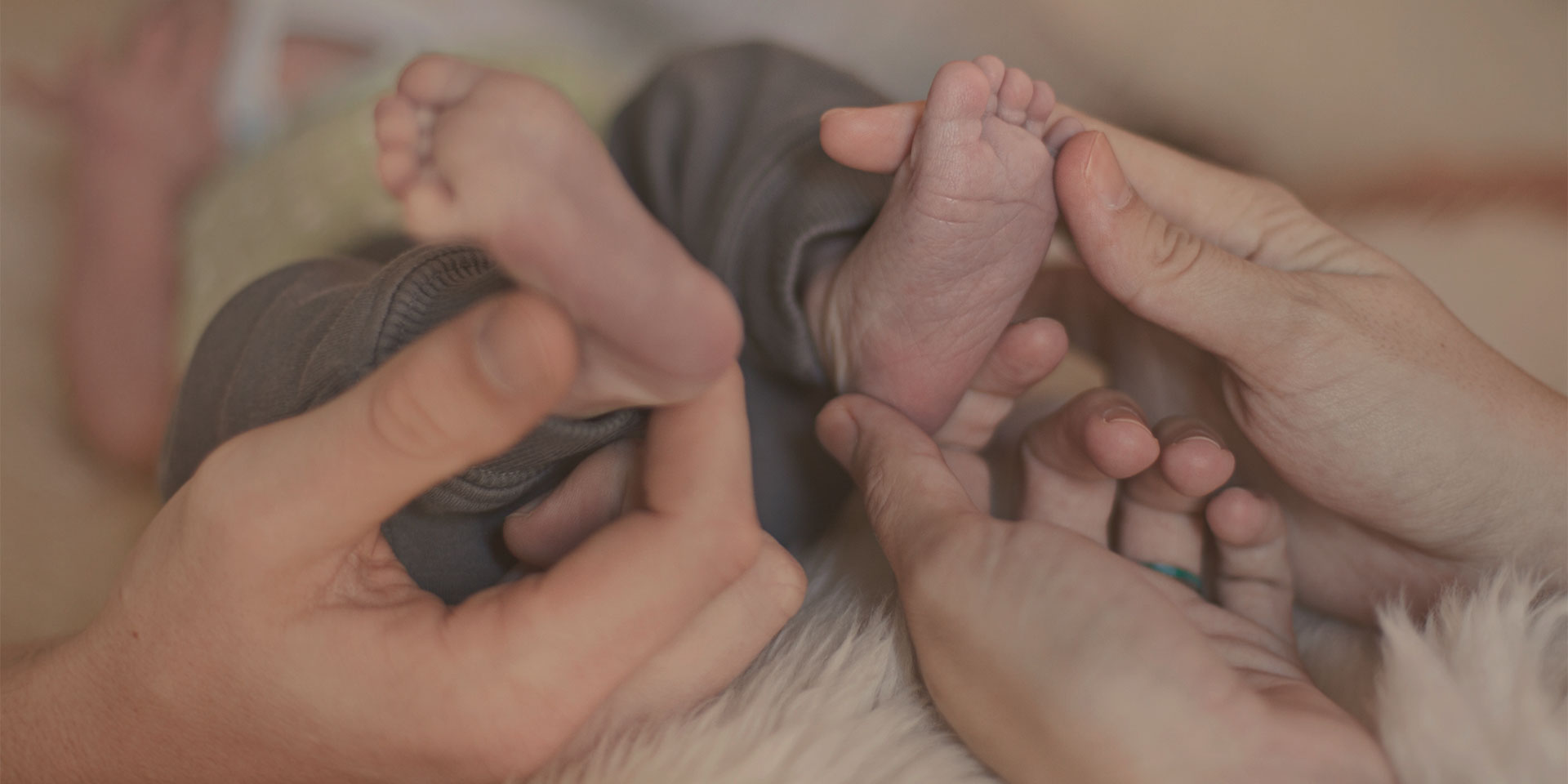Anyone who thinks they know exactly how to raise a child will usually change their perspective after becoming a parent. Beyond the joy of welcoming a new family member, they are confronted with the “despair and helplessness” of navigating the complex and unfamiliar world in which they now find themselves, writes psychotherapist Isabelle Filliozat.
Although there is a wealth of information on child psychology and education, this does not simplify the process of raising a child, as Filliozat points out in her bluntly titled book, There Is No Such Thing As a Perfect Parent. In fact, it makes it more difficult when we take into account the multitude of experts and their often contradictory theories on how a child should be cared for, with principles that change radically from one generation to the next.
However, the myth of the perfect parent, who knows exactly what to do to raise a child, at every moment, is not as prone to erosion. This myth is perpetuated by an abundance of material on “how to succeed with your child as you would with a chocolate cake recipe”.
In such a diverse parenting landscape, the desire to be as close to perfection as possible is not only almost universal, but has also given rise to particularly demanding parenting styles. In these styles, parents are under constant pressure to ensure their children’s success, which can burden the lives of both adults and children.
The challenges of intensive parenting
Renée Sentilles rarely takes her eyes off her 12-year-old son, Isaac. This constant supervision is essential for the success of the educational method she has adopted. Ms Sentilles says she has read all the books on childcare, paid for her son’s piano lessons since the age of five, enrolled him in football at four, and sent him to swimming and martial arts classes in an attempt to do “everything” for him.
Sentilles is not an eccentric mother with an absurd view of education; she is just one of many parents who confirm that this new educational approach is very popular with their generation. In an analysis published in the New York Times, journalist Claire Cain Miller calls it a “time-consuming and expensive” method of raising children, but also a very tricky one.
This type of intensive parenting was adopted by middle-class parents in the early 1990s, but today it has become a model that has spread to all social classes, including those without the financial resources to afford it, writes Miller, who retraces the origins of this style of parenting for her readers.
In the 1970s, the noun “parent” gradually became a verb, with an explosion of books on raising children. In the 1980s, the concept of a “helicopter parent” emerged—someone who constantly watches over their children’s physical safety—amid amplified fears about child abduction, and assault, despite these incidents remaining rather isolated. In the 1990s and 2000s, sociologists first described intensive parenting, which changed the way children were viewed, considering them vulnerable and malleable during their early childhood experiences.
This style of parenting became “child-centered, expert-guided, emotionally absorbing, labour intensive and financially expensive,” with mothers being the most involved parents in this process, as noted by the sociologist Sharon Hays.
Due to its demands, intensive parenting meant that parents spent more time with their children. In 2016, American fathers reported spending eight hours a week with their children—three times more than in 1965. At the same time, however, only 39% of fathers felt they were sufficiently involved in raising and caring for their children.
The way parents spend this time with their children has also changed—fewer household chores are done, replaced by more recreational or educational activities for children.
“My job was not to entertain them; my job was to love them and discipline them,” says Ms Sentilles’ mother, describing how parents raised their children in the 1970s. Although she acknowledges that her grandchildren enjoy a richer lifestyle, she believes that childhood used to offer freedoms that are impossible to regain.
Commenting on Miller’s article, paediatrician William G. Wilkoff lists a number of possible motivations for intensive parenting, including smaller family sizes, which mean that adults have much less experience of raising children than previous generations, and economic anxiety. As American parents face an unwanted first—that their children may not enjoy greater economic prosperity than their parents—the effort to provide access to more opportunities may guarantee advancement to a higher social class, or at least the preservation of the advantages of the class into which they were born.
Miller ponders if we have morphed into merchants of worry, peddling advice that establishes such high standards that parents perceive intensive parenting as the sole means of achieving them.
“Intensive parenting has really become the dominant cultural model for how children should be raised,” says Patrick Ishizuka, a researcher at Cornell University. In a study in which over 3,600 parents were interviewed, he found that, regardless of their education, income, or race, parents considered choices involving a lot of time and money to be the best for their child’s education. Consequently, most respondents said that a parent should stop what they are doing to colour with their child if they ask, or that a bored child after school should be enrolled in extracurricular activities.
However, intensive parenting, like other educational styles in which the child absorbs all of the parent’s energy and resources, has a number of drawbacks for both parent and child.

Putting intensive parenting under the microscope of science
In an article that dissects the shortcomings of this model, journalist Nicole Russell argues that intensive parenting is not really parenting. Russell admits that she felt pressured to provide her four children with everything they needed to succeed in life—from the best education to sports training—despite her limited time and financial resources. However, she stresses that this is not the golden path to raising a functional adult.
Although it gives parents a feeling of omnipotence and control, this pattern of relating to children can deprive them of independence and responsibility. A child who has had every opportunity handed to them on a plate will become accustomed to their parents smoothing the way for them at every difficult stage of life. If this type of education does not aim to help children become independent adults, the label “intensive” is not even applicable, the journalist points out.
Dr Amy Tuteur, a mother of four who has sometimes worked night shifts to spend more time with her children during the day, emphasises that there is nothing wrong with wanting to spend as much time as possible with your children. However, she adds that it is unhealthy to build your entire identity on your status as a parent: “That is not healthy for anyone, and it appears we are raising a generation that is helpless; their mother did everything for them, because that was her identity.”
A study investigating college graduates with “helicopter parents,” coordinated by Neil Montgomery, a psychologist at Keene State College, suggests that overprotective parents may leave an unhealthy mark on their children, promoting the development of neurosis, dependence, anxiety, and limited openness to new ideas and initiatives. The term “helicopter parent” was originally coined by students to describe the overprotective parents of their peers who got involved in issues that are traditionally resolved between students and educational institutions.
“I think what the helicopter parents did is they decided, ‘OK we know what good parenting looks like, we’re just going to ratchet it up to a new level, and our kids are going to be even better.’ The problem is, when they ratcheted it up, they went too far, and in fact, caused an expansion of childhood or adolescence,” says Montgomery.
Miriam Liss, a psychologist at Mary Washington University in Virginia, says that the ideology of intensive parenting can be extremely appealing, but these attitudes “may be more problematic than we think.” This statement is based on a study coordinated by Liss and published in 2012 in The Journal of Child and Family Studies, which shows that mothers oriented towards intensive parenting experience higher levels of stress and are less satisfied with their lives.
Mothers who believed they were the most important person in their child’s life, even more important than the father, reported higher stress levels, lower life satisfaction, and said they received less help from their family than other mothers. Mothers who said that their lives revolved around their children also reported lower life satisfaction.
Despite its negative effects on mental health, the authors suggest that women believe this parenting style “makes them better mothers, so they are willing to sacrifice their own mental health to enhance their children’s cognitive, social and emotional outcomes.”
Parents are often willing, consciously or not, to sacrifice their romantic relationship to meet their children’s needs, in the hope that they will be able to rebuild what they lost after the arrival of the new family members.
Marital satisfaction often declines with the arrival of children
According to a 2010 study that investigated 218 couples during the first eight years of marriage, marital relationships suffer a sudden deterioration of low to moderate intensity after the arrival of children. This decline persisted throughout the study, varying in intensity depending on the family’s specific characteristics. The research also revealed that couples without children also experienced a deterioration in their relationship, albeit a more gradual one. This suggests that the transition to parenthood significantly impacts the functioning of a relationship.
Other studies have shown that nearly one-third of couples experience a critical period in their relationship within the first 18 months after the birth of a child. These studies also indicate that parents participate in fewer social events, have less free time and social support, and experience an increase in marital conflict.
A study of 13,000 people found that parents report higher levels of depression than adults without children. Furthermore, depression does not diminish over time because parents “worry about their kids’ emotional, social, physical and economic well-being. We worry about how they’re getting along in the world,” writes Robin Simon, a sociology professor at Florida State University.
Simon believes that these figures reflect the loneliness of American parents, who, unlike in other countries or in previous generations, do not receive help in raising their children. Raising children without support is “emotionally draining,” says Simon.
However, Miriam Liss suggests that the way parents relate to their children may be the cause of depression and other mental health problems. “Maybe it’s not having a child versus not having a child,” she suggests, proposing that certain forms of parenting (such as intensive parenting) can put parents under more pressure and have a negative impact on their lives.
Although there is little data showing how this parenting style affects a child’s life in the long term, the researcher concludes that what causes depression in parents cannot be healthy for children either.
From this perspective, no marital relationship that is falling apart can benefit children. For a family to be truly happy, the adults must first find the key to happiness. Perfection seems to be the dream of millions of adults who have become parents, but what if the road to it is paved with the small and large satisfactions of a harmonious marital relationship?

When family relationships shift their centre of gravity from the child to the partner
According to therapist David Code, parents raise happy children when they prioritise their marital relationship over their children. He claims that focusing on children creates overly demanding offspring, as well as worried and exhausted parents.
For many people, putting your partner at the top of your list of priorities rather than your child seems like a strange and even scandalous idea, as does the idea that a good partner can more easily become a good parent.
Parents who admit to putting their marriage first do not receive favourable reactions from the public, admits writer Ayelet Waldman. She recounts how she struggled to recover from the furious responses that followed her statement that she loves her children, but her husband even more. “I long for the day when an eminent sociologist publishes a definitive study of marriage where the parents openly admit they love each other desperately, ardently and even more than they love their children,” she said.
David Code’s book, which has already become a bestseller in America, makes exactly that argument: adults who want the best for their children should focus on their relationship as a couple in order to become the best version of a partner. “As we break our backs for our kids, our marriage and self-fulfilment go out the window while our kids become more demanding and dissatisfied,” says the therapist.
Parents may sacrifice a lot to give their children a perfect childhood, but Code says the solution is much simpler: “The greatest gift you can give your children is to have a fulfilling marriage yourself.”
When parents drift apart, they often become too close to their child. However, placing the child at the centre of the parents’ life and relationship is not beneficial for the child either. One negative effect is that children whose parents’ entire existence revolves around them find it more difficult to accept the boundaries necessary for harmonious development, and their future boss or life partner may not appreciate someone who has not learned to respect boundaries.
Furthermore, when a child is forced to fulfil emotional needs that are not their responsibility, the resulting pressure can lead to undesirable behaviours that hinder development, Code concludes.
Psychiatrist Michelle Goland agrees that the marital relationship must come first. She points out that the mistake many mothers make is assuming that, if they fulfil their role as mothers brilliantly, their partner will understand that they will inevitably be neglected. In reality, however, he may suddenly feel inadequate in both his roles as parent and husband, and harbour a lot of resentment.
Referring to statistics showing an increase in divorce rates at the empty-nest stage, journalist Karol Markowicz writes that this phenomenon reveals the rift that can appear in a relationship when all the energy has been devoted to raising children. Markowicz believes that, for the sake of their children, parents also need time for themselves—time that should not be taken up by the endless needs of a child—precisely because a happy family starts with happy parents. Psychologist Carl Pickhardt, author of several books on parenting, confirms that making your child your number one priority is a mistake. He says that first, parents need to take care of themselves in order to have the health and energy to take care of other family members. Their second priority should be their marriage, with children coming in third place. Although he acknowledges that parents may find it difficult to admit to this order of priorities, Pickhardt insists that sacrificing personal needs and their romantic relationship for the sake of children “makes everybody unhappy sooner or later.”
When a child is born, parents would give them the moon, as the saying goes, to ensure that they grow up to be well-rounded, functional, and happy adults. However, beyond the real limitations they may face, parents have a much more accessible key to ensuring a happy and healthy childhood for their children. Since the Grant study, we have known that harmonious relationships are better predictors of a long and happy life than fame, financial status, or genetics.
By investing in their relationship as a couple, parents can teach their children the art of forming satisfying relationships, which benefits everyone. On the one hand, parents free themselves from the pressure of having to choose between their relationship and their children, learning that as new family members join them, they must strengthen their bonds so that the whole family can be happy. Children, on the other hand, will learn to love themselves and others, and to face life’s problems with confidence instead of wasting years searching for missing pieces of a family puzzle they have never seen completed.



















